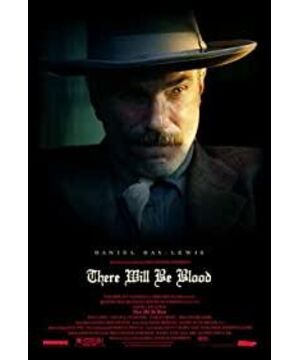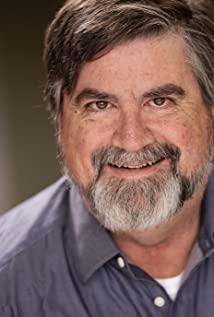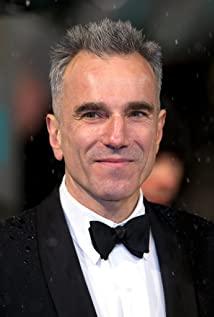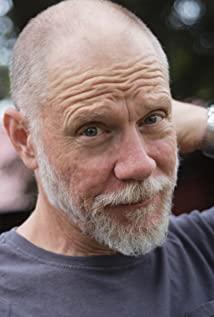The movie really lived up to expectations, and Daniel Day-Lewis's performance can be described as impeccable. He showed the joys and sorrows of an oil tycoon's life and struggle to the fullest, with distinct levels. His expression, tone, and body movements are all carefully crafted, just right, allowing the audience to fully integrate into the feelings of the characters and forget the actor himself. It can be said that there is almost no doubt that Daniel Day-Lewis will win the best actor Oscar for this role.
"The Blood Is Coming" is adapted to the novel "Petroleum" published by American writer Upton Sinclair in 1927. Set in the deserted Gobi of South Texas, the film describes the life trajectory of the fictional oil tycoon Daniel Plainview in the southern oil boom of the late nineteenth and early twentieth centuries. It also summarizes the poverty and backwardness of the South. The style of a small California town, and a parallel narrative approach is used to describe in detail the expansion of religious forces in the southern United States.
In addition to Daniel Day-Lewis's full of tension performance, the most impressive thing about the film is the seriousness of the shooting. The setting, photography, and performance are really conscientious and meticulous, and there is no compromise. There are "three and a half" physical conflicts in the film. One time was Daniel Plainview punching and kicking a young priest who came to ask for money because of his son's injury; the second time was the "third inspiration" that Plainview was forced to join Eli's leadership in order to successfully build the oil pipeline. "The Third Revelation", this priest who is also full of high ambitions and almost unscrupulous in his work avenged his personal vengeance. He slapped Plainview directly on the stage, making him daring not to speak; the last time was from the film. At the high-profile ending, the contradiction between the two intensified to the greatest extent, and broke out in the form of standard drama conflict. In another "half time", Plainview's son HW returned from San Francisco to the town of "Little Boston" in California. When he saw his father "abandoned", he loved and hated him with a loud slap in the face. These unforgettable details are so real that they are not only full of strength, but also make the audience have to fully integrate into the plot of the film and devote themselves willingly.
The authenticity of the characterization is one aspect, but it is not the essence of the story. The novel "Petroleum" depicts how oil changed the geography and humanity of the southern United States at the turn of the century. The movie is very faithful to the original in this regard. The development of oil and religion parallels the development of two lines. One main line is represented by the tycoon Plainview, and the other side line revolves around the young careerist priest Eli. These two characters are slowly evolving in front of the audience: one started as a taciturn miner and became a rich oil man after his fortune; the other was originally a poor son of a poor peasant family, and with the expansion of religious power at the beginning of the century, relying on excellence His eloquence continues to rise step by step. Plainview can't stand others pointing at him the most. An unintentional accusation from the other party can make him long-lasting jealous when discussing business. Plainview will never show mercy to those who deceive him, and there is no mercy at all. He worked hard to run his own oil business and was full of confidence and desire for the future. After this ambition was expanded to a certain extent, his original ambition to serve others surpassed his own goal of success and became the master who devours humanity. Anything that stands in the way of success The obstacles in front of the road, even family affection, were ruthlessly shattered and swept away, at the cost of incomparably deep loneliness. Even after the arrival of success, this ambition to be above all things will not be satisfied and retreated. Plundering has become a habit and life itself, just like a speeding chariot with a brake failure. Break everything, destroy everything.
And Eli, the seemingly gentle and polite priest, is hidden under the "performance" of exorcism, why not want to control everything and dominate all the wolf ambition? He made full use of the kindness and ignorance of the residents of the town, and relied on his outstanding eloquence and performance talent to control things in the town by applause. The church became bigger and bigger, and there were more and more believers. It's a pity that there is no room for two tigers. From the first time Plainview stepped into "Little Boston", the competitive relationship between the two began. As the situation develops and becomes clearer, the balance of power between the two is also clashing repeatedly. The climax of the confrontation is the three physical conflicts mentioned above. Like any political power, although the big capital power represented by oil and the religious power compete with each other, they are also dependent on each other at the same time. Before common economic or political interests, the mortal enemy of the previous second can instantly lay down their arms and shake hands for cooperation. The film’s portrayal of these two forces is extremely pungent and merciless everywhere. On the one hand, people lament the difficulty of success and the cruelty of sacrifice. Desolately.
Also set in Texas, this 2007 masterpiece "The Blood Is Coming" is hardly reminiscent of "No Country for Old Men" that was released the previous month. The same blackness, violence, and depression, one is full of dangers, describing the dark corners of the human heart, and the other is like an epic, describing the dual cruelty of economic development and social change. The same compactness, repeated climaxes, and full of tension. One uses metaphors extensively, opening a new chapter in the form of film narration through novel narrative structures and anti-dramatic climax methods; the other gives full play to the expertise of characterization will be relatively simple. The potential of the content of the game is maximized. It is also a visual feast, and it is like drinking sweet rain, but one is red wine, with a strong entrance and a long aftertaste; the other is spirits, spicy, rich, and changhong.
In the face of the upcoming 80th Oscar, the contest between these two masterpieces can be described as a dispute between form and content. Whether it is right or wrong, it will make you happy for the other while sighing for the other. I personally always prefer red wine, so I hope that the best director of the best film will go to the family of the Coen brothers, but in such a wonderful 2007, let us wait for the unknown answer to open.
Part of the content was published in the March 2008 issue of "Leisure" magazine, please indicate if reprinting.
View more about There Will Be Blood reviews











